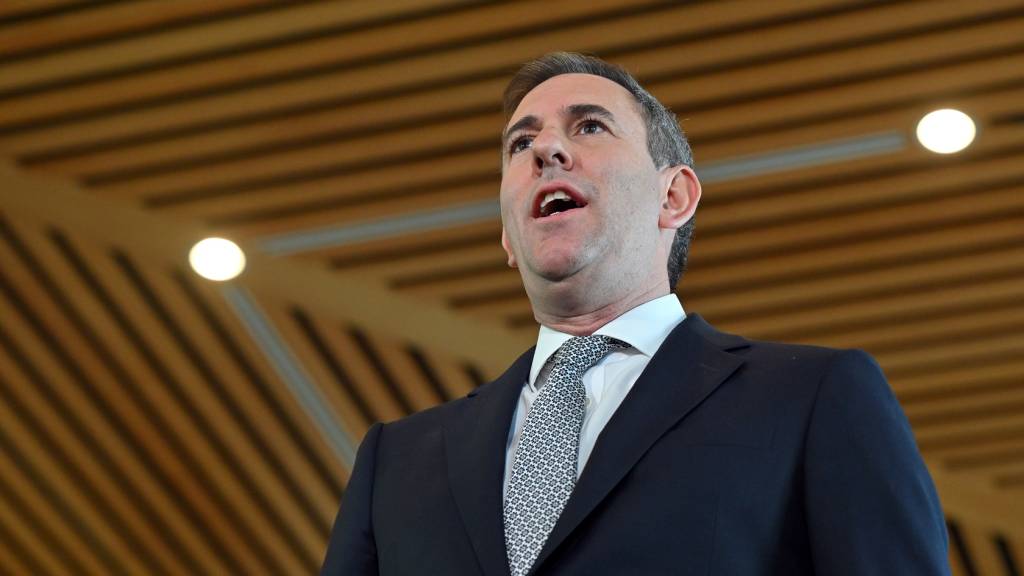With the great and the good (or at least the mild and the mediocre) gathering in Canberra for a productivity roundtable, and the atmosphere thick with ideas for enabling better economic growth, here are some actual real-world ways to strengthen productivity as achieved by Australia’s biggest businesses:
These companies — NAB, Qantas, ASX, Bluescope, Google — are all represented at the productivity roundtable this week by one Bran Black, the former Liberal staffer and now head of the Business Council of Australia (BCA), of which each is a member. The roundtable will also be hearing from Black’s predecessor, Jennifer Westacott.
Related Article Block Placeholder
Article ID: 1217823
And what these companies all have in common is their willingness to exploit their market power — power gifted to them by Australia’s regulatory settings that have enabled, and in some cases protect, their market dominance. Dominance that enables them to break the law, to rip off workers, customers and other businesses, to be almost ludicrously incompetent and blithely indifferent to service standards, and yet continue to be a corporate citizen of good standing whose gladhanding representatives are allowed to keep oozing their way into ministerial suites in Canberra.
It says it all about a productivity roundtable where one of the biggest hurdles to greater productivity, our lack of competition, is absent from the agenda. That high and growing level of concentration enables big companies like NAB, Qantas, ASX, Bluescope and Google to take the easy way out, to underinvest, to treat breaking the law as a routine cost of business.
But there they sit, via their representative in Canberra, demanding a company tax cut, an increase in the GST and more powers to rip off workers, insisting that government spoon-feed them the productivity they can’t be arsed pursuing for themselves. Why should they bother? NAB is part of the protected Gang of Four dominating banking. Qantas is virtually a monopolist. Bluescope dominates steel manufacturing and is protected by a Kafkaesque anti-dumping system that punishes companies for reducing inflation. The ASX is a monopoly. Google is one of the most powerful tech companies on the planet.
Independent. Irreverent. In your inbox
Get the headlines they don’t want you to read. Sign up to Crikey’s free newsletters for fearless reporting, sharp analysis, and a touch of chaos
By continuing, you agree to our Terms & Conditions and Privacy Policy.
Excepting Google, each of these companies — and others represented by the BCA in Canberra today, like the rest of the big banks, Coles and Woolworths, and Google’s partners in crime Telstra and Optus — are all examples of a different kind of “Canberra fix” than the one Productivity Commission chair Danielle Wood spoke about yesterday.
For Australia’s biggest oligopolists and monopolists, the “Canberra fix” isn’t about a reflexive demand for regulation in response to every crisis and scandal that comes along. It’s about relentlessly working government systems to protect the dominant position they enjoy, and to extract regulatory and financial favours from decision-makers, deploying lobbyists, donations, offers of post-public life positions, modelling and campaigns. That’s where their innovation and productivity enhancement efforts are directed. And those efforts are cheered on by another oligopolistic industry, the media, dominated by foreign-owned News Corp, Nine and Western Australia’s media monopoly controlled by Kerry Stokes, all of whom are themselves expert rentseekers adept at getting what they want in Canberra — and thwarting what they don’t.
So it’s no wonder we end up with a three-day circle jerk in which big business queues up to demand their fix of productivity from the government. The parts of the brains of Australian management dedicated to actual innovation and smarter working have atrophied through non-use. Only the bits that know how to manipulate government still work. That’s all you need when you have market power.


